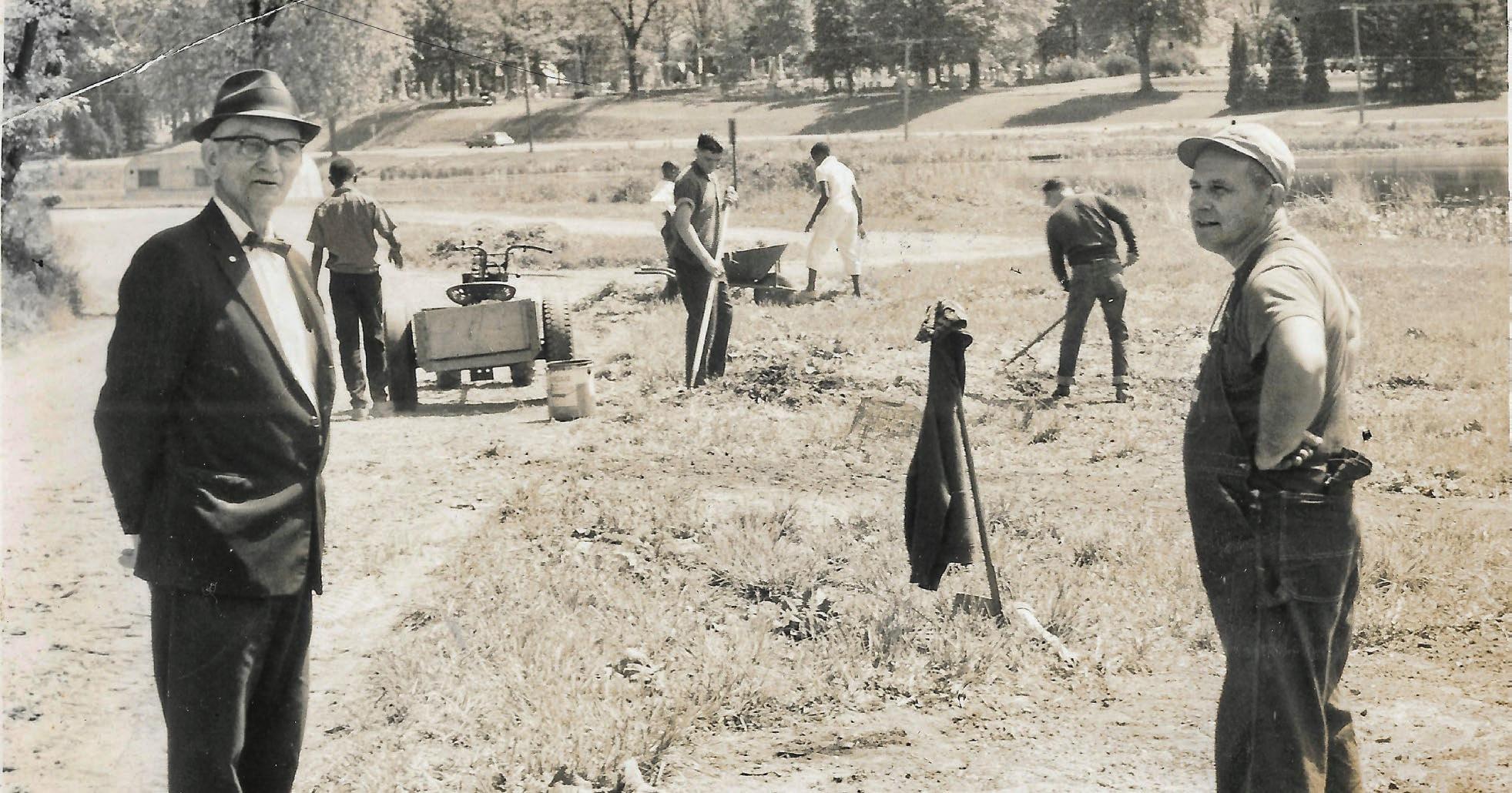
5 minute read
Remembering Truman Barnes and the Potential for Change
How one man’s vision and can-do attitude helped clean the Kalamazoo River, initiate recycling, and guide Boy Scouts and arbors.
This is the second part of a look back at past Gleaner Life Fraternalists of the Year. The first part appeared in 2025’s spring edition of Forum Magazine.
"The difficult we do now; the impossible takes a little longer." — Phrase adopted in World War II by the U.S. Navy Seabees
Truman Barnes faced the impossible in the mid-1960s. He wanted to improve the environment and clean out Michigan’s Kalamazoo River where it barely inched through his beloved city of Albion. The polluted river, however, was described from the 1940s-1960s as an “eyesore” most people tried to avoid.
A Gleaner Life member and veteran of the U.S. Navy Seabees during World War II, Barnes was determined to make changes. Decades of waste from paper and cereal mills, pharmaceutical manufacturers, automobile parts suppliers, trash effluent, and other sources had turned the Kalamazoo River into a polluted slough.
Barnes, however, had a mission. “As it grew shallower and muddier, his sense of outrage simmered,” a 1970 National Gleaner Forum story recalled. “In 1967 it boiled over in a one-man movement to save the river. He waded into the muck to clean out vegetation and started talking to everyone he could corral.”

Among the first volunteers to heed Barnes’ call were members of Albion’s Boy Scout Troop 128. Barnes, who also was a Gleaner agent and District Manager, sponsored the group and it was known as the Gleaner Boy Scout Troop. “I was in his Boy Scout troop sponsored by the Gleaners in the 1960s, and he often mentioned the Gleaners,” said Albion historian Frank Passic Jr. Barnes and his scouts had begun their environmental work on the south edge of the city, just down the street from Barnes’ home on Adams Street. They cleaned up a riverside area along Water Street that had become a dump for construction debris, old sidewalk concrete, and dead willow trees, and turned it into a small park.
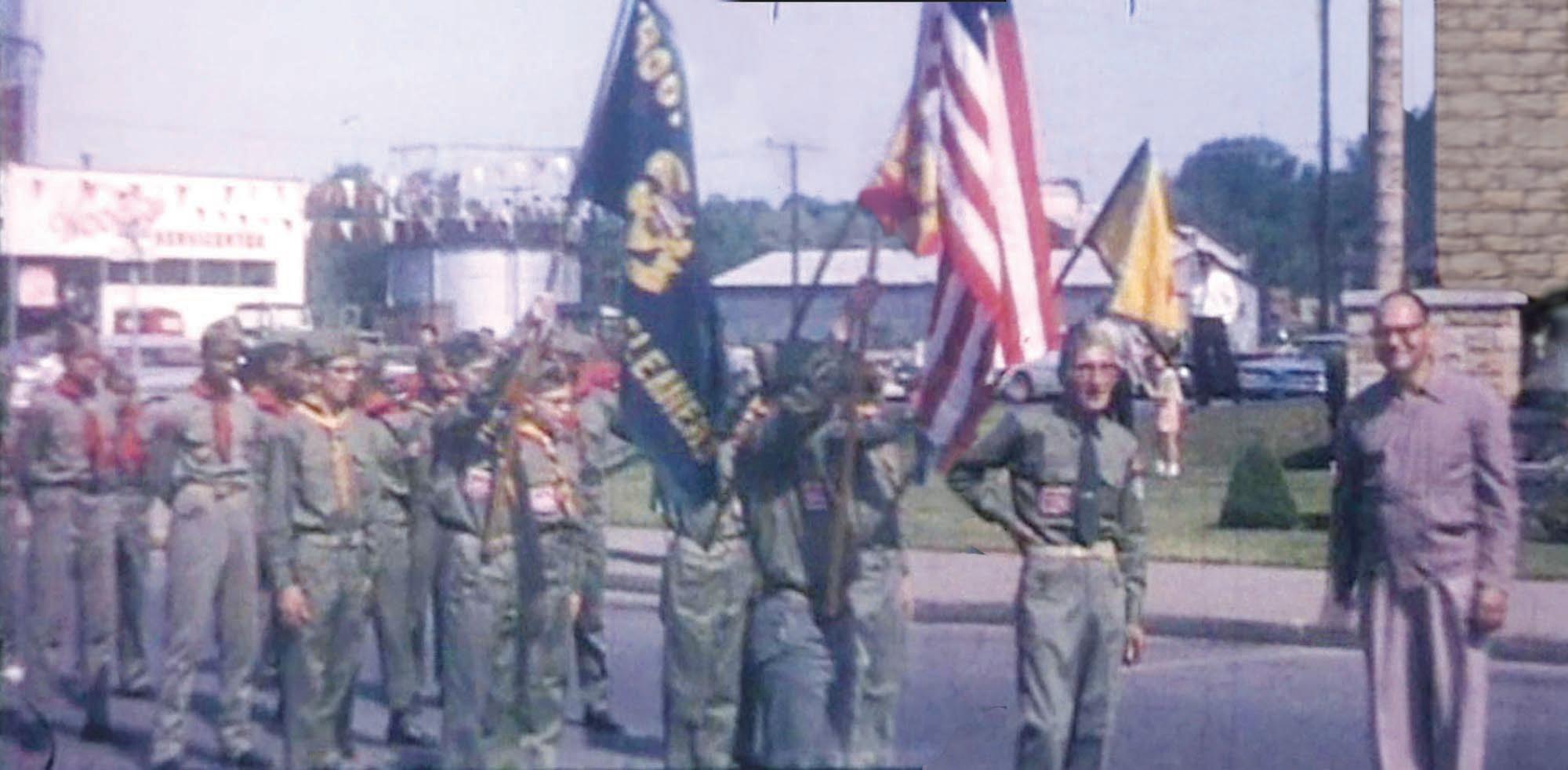
That was only the start. Dredging and cleaning the river itself was expected to cost at least $500,000. To help the city fund its portion, Barnes in 1970 opened one of the first recycling centers in the country, the Albion Recycling Center. He had formed the Albion Youth for a Clean Environment group the summer before, and the 42 members began operating the recycling center.
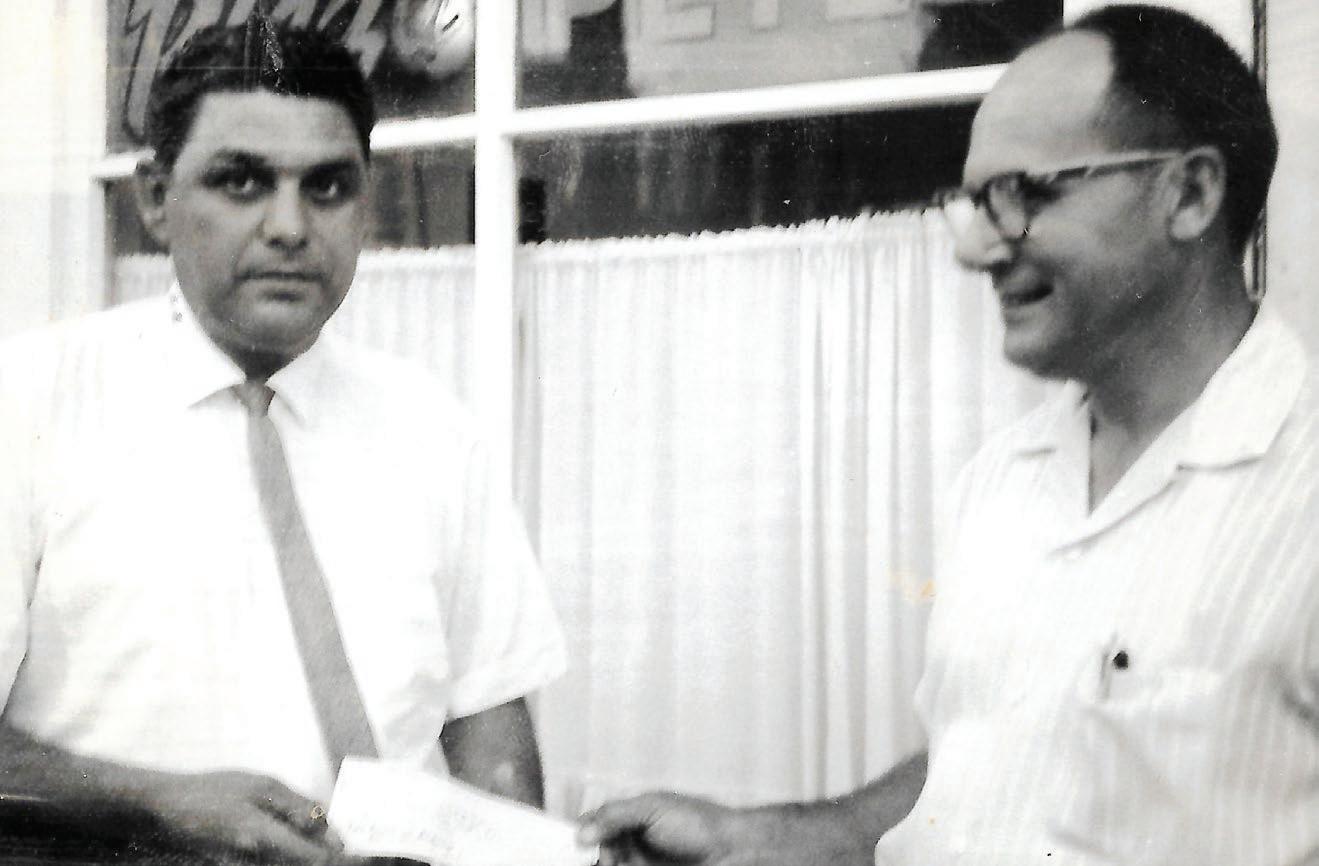
“Glass is color-sorted, broken in barrels, and sold to Owens-Illinois Glass Co., Charlotte, for $10 a ton,” Forum reported. “Papers and magazines are bundled separately and sold to Michigan Carton Co., Battle Creek. Newsprint brings $14 a ton, magazines $5 a ton. The project exports much of the city’s trash, reduces smoke from burning papers, saves useful material, and holds the promise of a reclaimed river. That’s gleaning and cleaning in one operation.”
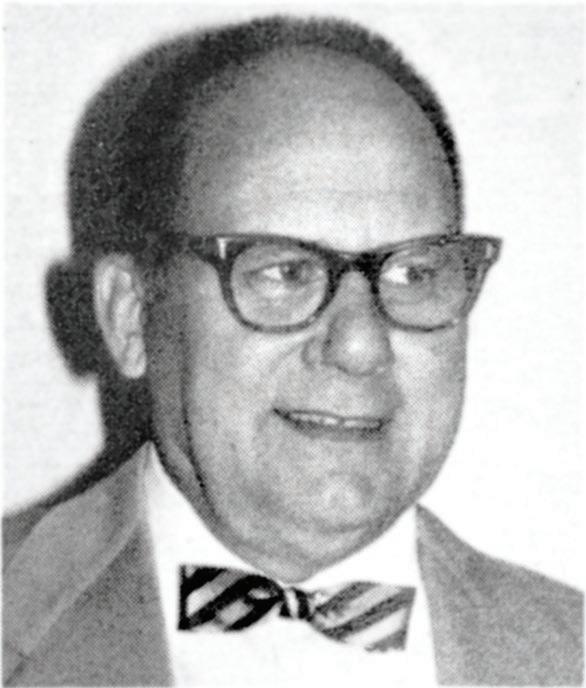
In a couple of years, the volunteers had recycled 330 tons of paper, glass and metal to collect $5,000. They also ground up wood and other organic material into “eco mulch” for gardens. They inspired other groups and projects. The city’s Water Street Park Project fund grew to $27,400 which was matched by state and federal agencies. A boat launch and benches were added. In 1973, the effort helped Albion win the National Municipal League’s annual “All American City” award. A city celebration included a visit by Michigan Gov. William G. Milliken. In 1983, the park along the river was renamed Barnes Park in honor of Truman and his wife, Norma.
Barnes’ reclamation efforts also extended to Gleaner arbors. He was a longtime Arbor Chief Gleaner (now called President) and Secretary. Noticing several arbors in Jackson and Calhoun counties no longer were active, Barnes worked to combine three of them into United Arbor No. 125. It was based in Albion but included members from Homer, Union City and the surrounding area. When Gleaner hosted picnics, Barnes was known as “the Old Wagonmaster” and Norma often directed the music and played a variety of instruments.
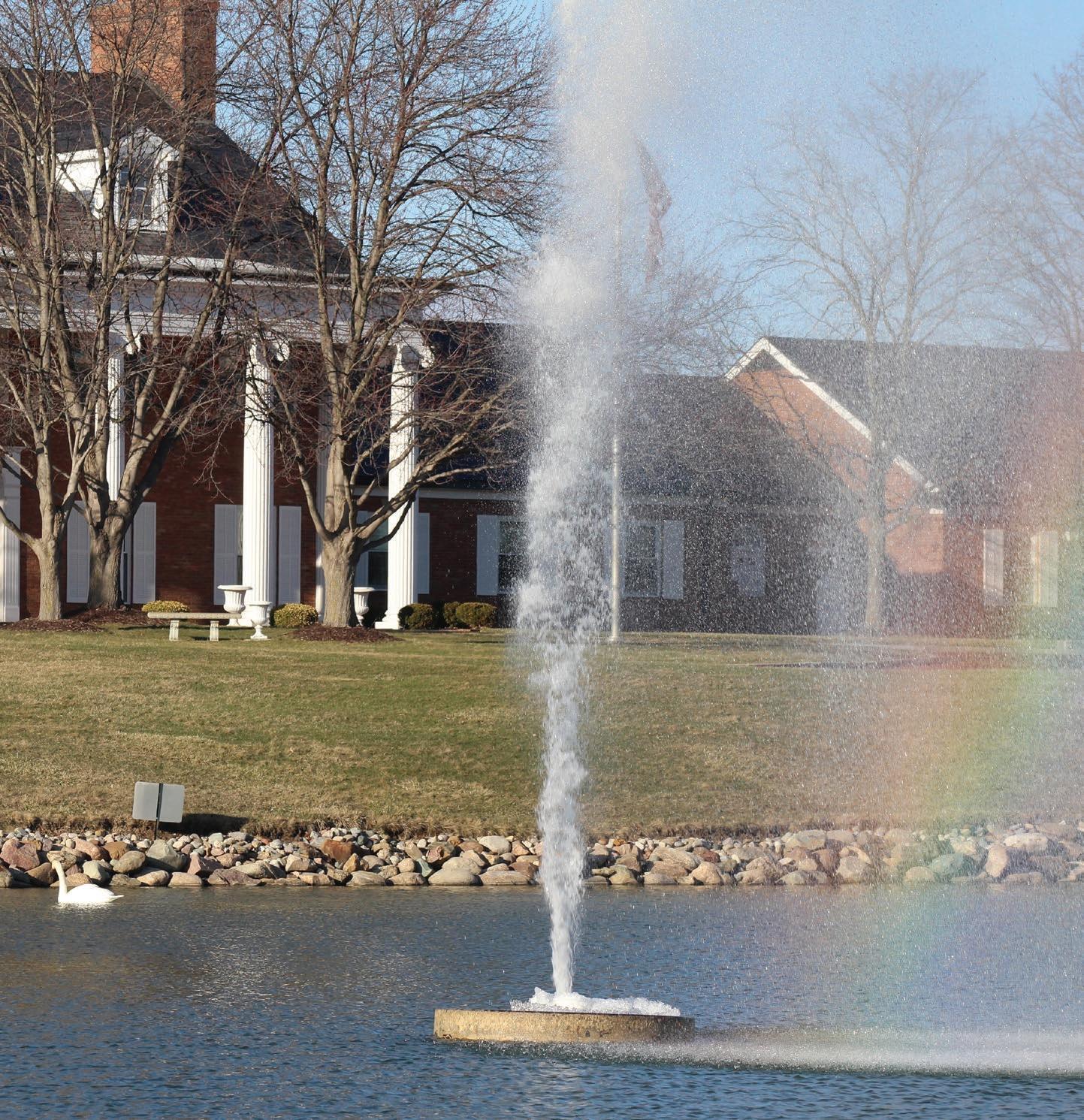
Five years after Albion received its “All American City” designation, Truman and Norma found another way to spotlight the joy of water. They donated the large fountain for the pond in front of Gleaner’s Home Office. The fountain has been maintained over the decades and still welcomes visitors and waterfowl.
After Gleaner Life began to present its Fraternalist of the Year award at biennial conventions in 1985, Barnes was the fourth recipient chosen in 1991. It proved bittersweet as Truman, 75, passed away a few weeks before the convention occurred. His Fraternalist award was the first to be presented posthumously, with Norma accepting it.
Perhaps it is fitting that Earth Day is celebrated annually on April 22 — Barnes’ birthday. “No one owns the earth,” he said. “We are all caretakers.”










